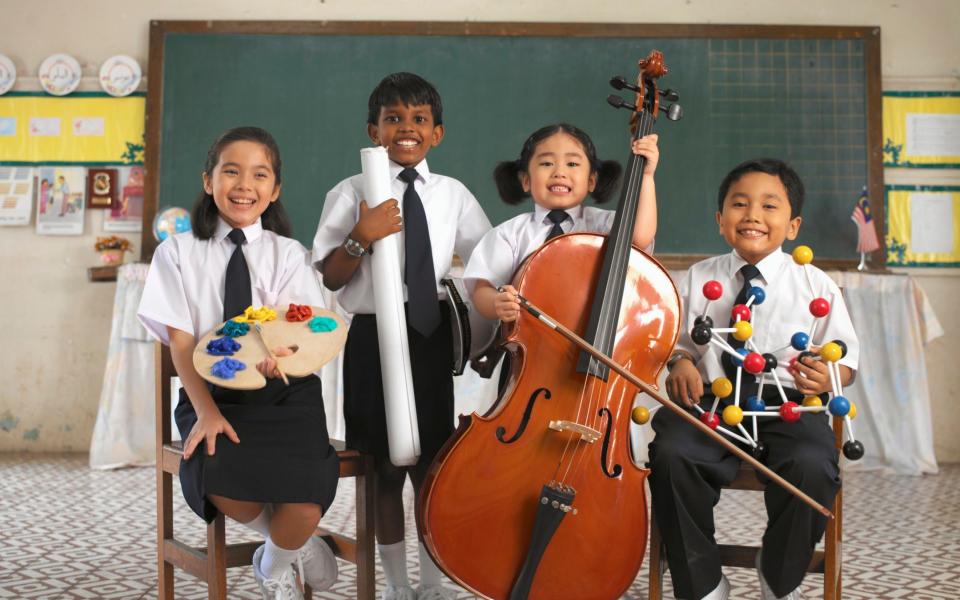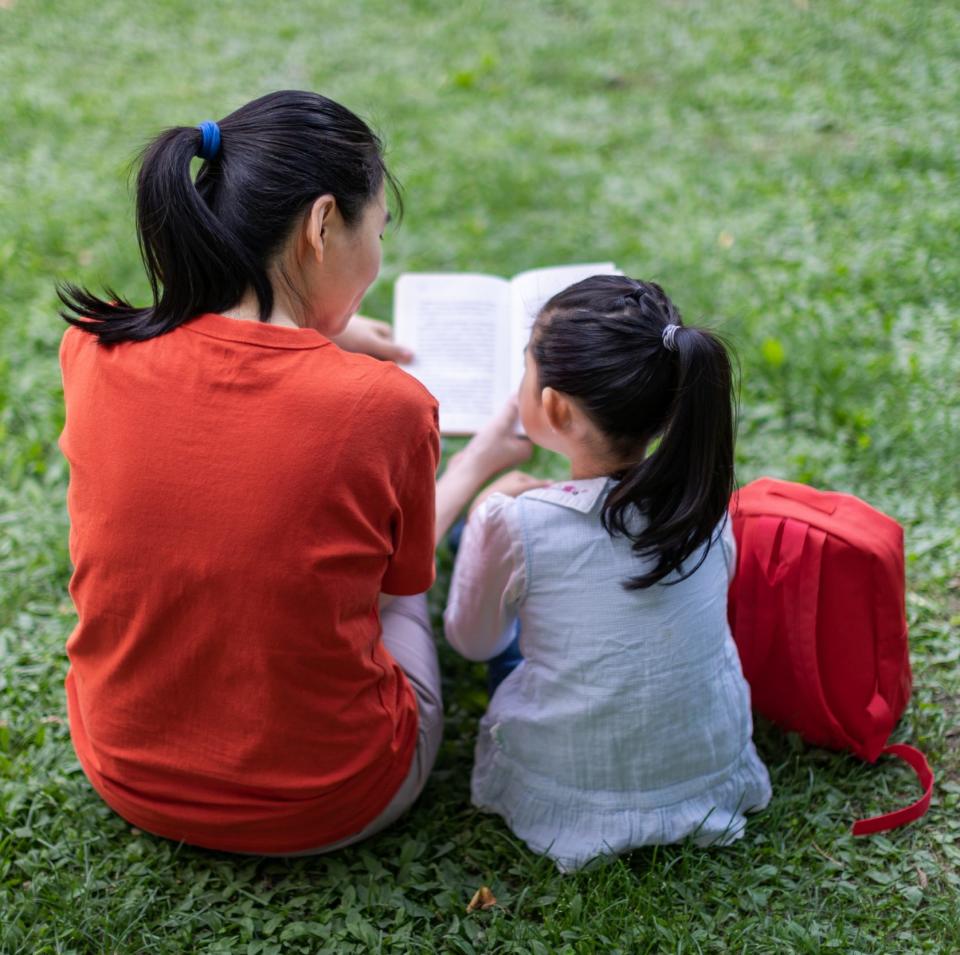I had reservations about the tiger parent approach – until I worked at a school in Asia for nine years

When I was preparing for my new teaching job at an international school in Asia I decided to read Amy Chua’s now-infamous book about tiger parenting, Battle Hymn of the Tiger Mother. The New York Times had profiled the book in an article about why “Chinese mothers are superior” and I wanted to better understand the Asian parent demographic that I was now going to be working with.
Having read the book, I assumed that tiger parents would be the exception rather than the rule. Synonymous with parents with extremely high aspirations for their children, tiger parents push their kids to achieve ever higher test scores and are planning Oxbridge applications for their child when they are as young as five or six years old. They prioritise academic, musical and sporting achievement over socialising and fun. They accept nothing but the highest standards for and from their child and often cause headaches for the school because of their continual interference in their child’s education.
I had worked previously at primary schools in Somerset and the north of England where the standard parental approach to education was much more hands-off. My observation of British parents is that they were more kittens than tigers. And my reservations about the tiger approach were probably the same as yours: it sounds way too extreme. I worried that kids who were encouraged to prioritise work over all else would miss out on normal early childhood development and be denied the opportunity to play, and that it would surely backfire later in life. I also worried that children were being rote taught, and would lack creative and problem solving skills.
But as soon as I started my new job I realised that the tiger approach was commonplace, at least in the school that I worked in, and I discovered first-hand the clash of cultures between the Western and Asian approaches to child-rearing and education.
I quickly became used to parents being fully engaged in every aspect of their child’s education. Daily phone calls between parents and teachers, multiple daily meetings, online entries in learning journals, a constant stream of information via app going between home and school… the parents could not get enough information about what their child was doing, learning, eating, playing with, and the opportunities they were being given at school. As a Western educator working within a British style educational model, I often pushed back against these parents, preferring their child to have choices, make independent decisions, take risks and to play.

Despite the good academic results there are definitely dark sides and downsides of tiger parenting with students reporting high stress environments, risk of self harm and teachers reporting a lack of social skills from children unused to interacting and understanding peer behaviours.
However, over my nine years in Asia I began to see that as well as getting consistently good academic results, children with tiger parents were also fully engaged in their school life and wider activities. They had high self-esteem, they were proud of their academic and broader achievements. Gradually, I began to adopt some tiger parenting – and teaching – techniques myself.
On my return to the UK this year, I have been struck by how much a child’s success depends on that parental involvement and aspiration; that showing up and actively advocating for their child. At a time where UK school attendance is at its lowest (government figures showed that school absence peaked at 8.4 per cent the week prior to the December break), I can vouch for the Tiger approach and their child’s subsequent attainment.
While I don’t advocate every parent adopt full tiger stance, based on my experiences working with a huge variety of international families and seeing the progress and success of their children, here are ways in which we could all be more tiger:
Demonstrate respect for education
Asian parents largely prioritise and show respect for education. By telling their child it is important, they are creating an important foundation in their mind too. When children are young, their primary source of influence is their family, so it’s critical for their young lives in school that they think positively about it. I’m not asking you to love everything about your child’s school but it is important to speak positively about it at home.
Attendance is key
There is a strong correlation between school attendance and student attainment. It’s not rocket science to see that when children are not in school, they are missing crucial building blocks, making it harder to catch up. Schools can only make an impact if the children are there in school.

Turn up yourself – and talk to teachers
In Asia we saw post-pandemic parent-return to school in droves. It is standard there for parents to come to the school a few times a month, perhaps to join their child in class, attend a workshop, or have a quick chat at the door. Teachers love to tell parents how they can help. So if they do, then listen! Teachers hold a wealth of knowledge about how your child learns and what they can do to get better so engage with the school. Go to parent meetings, sports days and voluntary workshops. It tells your child that school is important and it will help you to understand methods used in school which could support you at home.
Read, read, read!
Read to them when they’re babies and have daily and bedtime stories throughout their childhood. Encourage your child to read to you as soon as they start bringing books home. The evidence shows that children who are read to regularly before the age of five years have higher outcomes at GCSE level. In Asia, tiger parents frequently listen to their child read and clamour for more books to take home. As a result, kids have a greater vocabulary, creative ideas, sense of how stories go, characters, and they inherently pick up on different sentence structures and grammar without needing explicit teaching.

Music and sport matter
Both music and sport are a brilliant way for kids to understand the importance of commitment and practice. And when the going gets tough, tiger parents don’t let them give up. The level of instrument playing and musical performance I observed in some of my young students was phenomenal and many took part in the many musical events, recitals and competitions across the school year. Competition was so fierce to get into recitals that the music team had to add more to the calendar to give students the performance opportunity.
My tiger students were often in football, basketball and swimming teams and I could see that they naturally applied that discipline and commitment to other areas in their lives too. Music and sport build character. They establish routines. They require effort and involve team-playing. Skills are built and developed as they progress. Tiger parents show up to every sports game, every music recital; they are loud in their support and vocal on the sidelines. The downside is they may harangue the coach or bend the music teacher’s ear to get them included in every performance, but the child knows their parent is there for them.
Limit technology
I’m talking as much about your own use of it as your child’s: children want to do what their adult is doing so if you are staring at your screen they will want to do the same. At my Asian school, which was pro-technology, many parents actually pushed back against the use of technology, seeking clarification or justification for its use in school.
With a rich after-school program of activities there was definitely less time for tech, allowing kids to develop other aspects of their lives instead. I’m not suggesting there is no room for technology – far from it – and many schools actively harness technology for a multitude of reasons in and out of school, but set boundaries. Know what your child is doing on their device, set times for technology, and don’t use it as a punishment or reward.
Value ‘cultural capital’
Extra curricular activities like holidays and other cultural experiences really make a difference. Children who have a rich experience of the world are automatically going to be better able to make sense of it and make links between their experiences and their learning. I’m not suggesting you sacrifice yourself to give your child an advantage: if you don’t love musical theatre or sport, don’t choose a musical or a football match. It doesn’t have to be big or special or cost a fortune. There are free events all over towns and cities; try a visit to the library, or a walk by the river.
Get a tutor
Even with very successful children this is standard in Asia where kids often have four plus hours a week in addition to school. I think that is too much, especially for young children, and I am not advocating for that much time. But be aware that when classes are big and there are disruptions in school, your child may need extra help.
It also raises the bar when in school. If children have had learning practised and reinforced through other avenues, no wonder they achieve well when in school. I am fully aware of the costs involved, but if you can afford it for a short period or to support in a particular area, your child will grow in self-esteem about that subject.